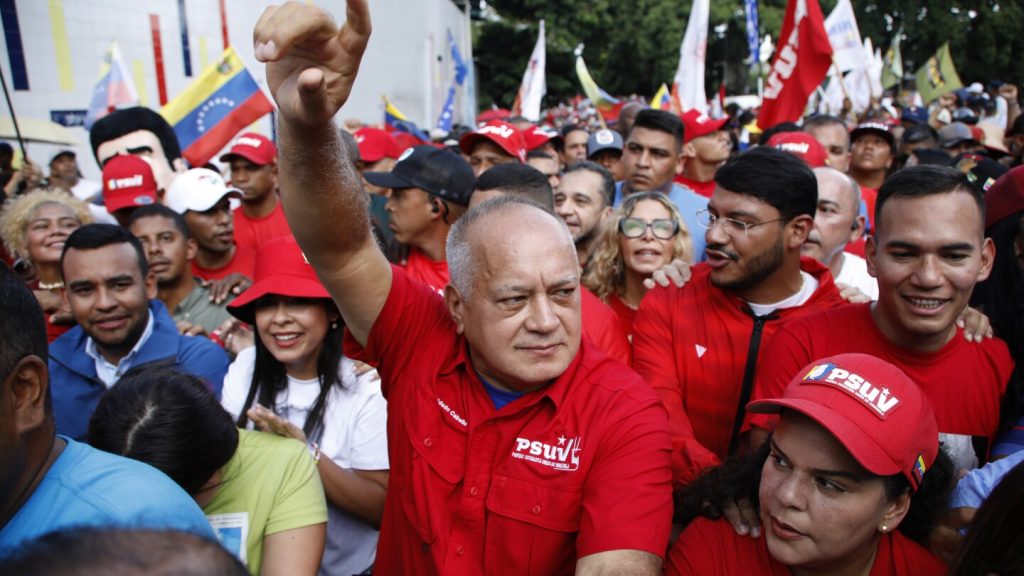In a recent move by Venezuelan President Nicolás Maduro, he appointed Diosdado Cabello, a ruling socialist party boss, to oversee the country’s police forces. This decision has raised concerns among human rights groups as Cabello is known for his hard-line stance against government opponents. Cabello, a retired army lieutenant who fought alongside the late Hugo Chávez, has a long history in Venezuela’s political landscape and is considered one of the most powerful figures in the country. Despite his past roles in the government, Cabello has never served in Maduro’s Cabinet until now, which has sparked speculation about a rivalry between the two leaders.
Following last month’s contested presidential election, more than 2,000 people, including journalists, politicians, and aid workers, have been arrested in Venezuela. The wave of arrests is expected to be a topic of discussion at a special meeting of the Organization of American States in Washington. Human rights groups are concerned that Cabello’s appointment as interior minister will lead to an increase in the government’s repression of protests and opposition voices. Juanita Goebertus, director for the Americas at Human Rights Watch, has warned that Cabello’s role in the government signals more crackdowns on dissent in the future.
María Corina Machado, a prominent opposition figure in Venezuela, has spoken out against the recent arrests, including that of her lawyer, Perkins Rocha. Machado, who was barred from running for office against Maduro, has condemned the government’s actions as an attempt to intimidate and silence dissenting voices. Despite the crackdown on government critics, Machado remains defiant and has vowed to continue fighting for the rights of all Venezuelans. The escalating tensions between the government and opposition groups have led to growing concerns about the future of democracy and human rights in the country.
Diosdado Cabello, at 61 years old, has been vocal about his support for a forceful response to those who challenge Maduro’s leadership. With a background in the security forces, Cabello has expanded his influence in Venezuela as public dissatisfaction with Maduro grows. The international community has taken notice of Cabello’s actions, with several governments imposing sanctions on him for alleged crimes ranging from money laundering to human rights abuses. The U.S. has also offered a $10 million reward for his arrest on drug-smuggling charges. Despite these challenges, Cabello remains a formidable figure in Venezuelan politics and continues to play a significant role in the government’s crackdown on dissent.
In response to criticism and concerns about the new Cabinet appointments, Maduro has defended the shuffle as necessary to meet the needs of the Venezuelan people. Along with appointing Cabello as interior minister, Maduro also named Delcy Rodriguez as oil minister and Hector Rodriguez as education minister. These changes are seen as an attempt by Maduro to accelerate and deepen reforms in the country. However, many Venezuelans and international observers fear that the government’s heavy-handed tactics, as exemplified by Cabello’s appointment, will only lead to further repression and instability in the country. The future of democracy and human rights in Venezuela remains uncertain as the government continues to crack down on dissent and opposition voices.


